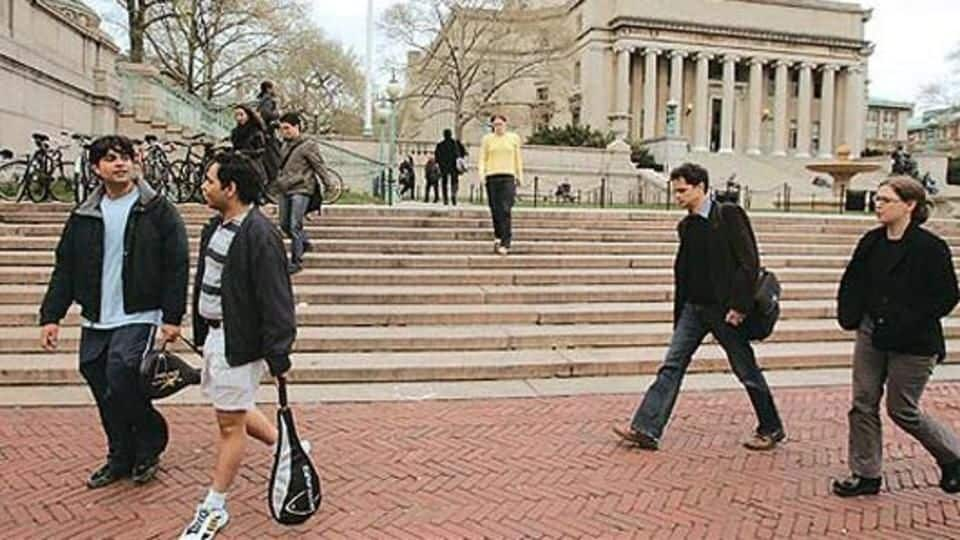
Falling number of Indian students could impact US severely: Report
What's the story
The US' tightening of immigration policies has taken a hit on international students, particularly from India. The number of Indian students in graduate-level computer science and engineering programs dropped 21% from 2016 to 2017. This accounted for more than half of the 4% decline in international students in American universities. This could impact American students, universities, companies, and even the economy, a report said.
Laws
The Trump administration has been tightening immigration laws
The Trump administration has narrowed immigration requirements since it came to power in November'16. Recently, it announced new H-1B visa rules, mandating companies to furnish documents assuring the absolute necessity of an H-1B applicant for a "specialty occupation" for a stipulated time-period, among others. This will affect many American banking, travel and commercial services that depend on Indian workers to get their job done.
Work visas
Fewer work opportunities have compelled US-educated Indians to return
Though the US hasn't yet restricted Indians from getting general visas, steps like the aforementioned have made it difficult to get work visas. Lower chances of finding work have compelled Indian students to come back after studies rather than look for jobs there. In fact, the number of US-educated Indians looking for jobs here jumped more than 10 times during December'16-March'17.
Stats
Sharp decline in graduate-level Indians, but marginal rise in undergraduate-level
The National Foundation for American Policy (NFAP), a non-profit public policy research organization, found similar trends for Indians going to the US for graduate-level computer science and engineering programs: 18,590 fewer students went in 2017 than 2016. Incidentally, the number of Indians in these undergraduate courses increased by roughly 740. Hence, the NFAP ruled out demonetization as a major factor behind the change.
Impact
Such trends could affect universities, companies, even the economy: NFAP
International students, particularly Indians, are a "major source of talent for US companies," NFAP notes. Many American universities couldn't even maintain majors and graduate programs without international students, it had said in an October'17 report. Moreover, "international students have more choices than ever before about where to study." If the US government continued similar policies, it could "accelerate any negative trends," NFAP warned.